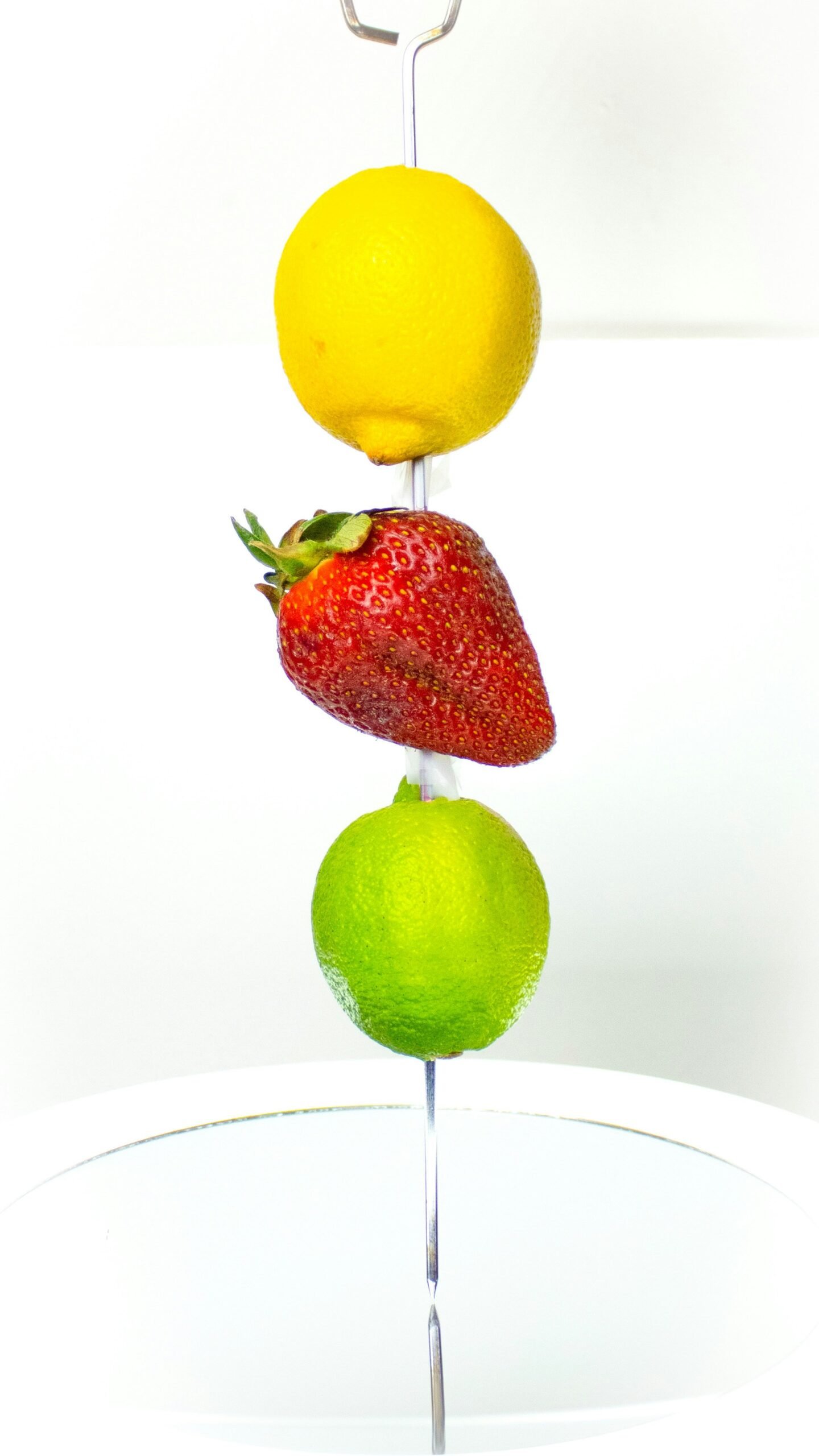In this article, you will discover the culprits behind gout flare-ups as we explore the question, “What foods cause gout?” By understanding the impact of certain food choices on this painful condition, you can make informed decisions about your diet and take proactive steps towards managing gout effectively. Join us on this insightful journey to uncover the foods that may be triggering your gout and learn how to alleviate the discomfort for a happier, healthier life.
Understanding Gout
Gout is a type of arthritis that is characterized by sudden and severe attacks of joint pain, redness, and swelling. It occurs when uric acid levels in the body become too high and form crystals that deposit in the joints, leading to inflammation and pain. While genetics can play a role in gout, lifestyle factors such as diet also contribute significantly to its development and management. By understanding the correlation between diet and gout, how uric acid contributes to gout, and the process of purine metabolism, you can make informed decisions about your diet and better manage this condition.
The correlation between diet and gout
Diet plays a crucial role in the development and management of gout. Certain foods can increase uric acid levels in the body, leading to a higher risk of gout attacks. Foods that are high in purines, a compound that breaks down into uric acid, should be avoided or consumed in moderation. Additionally, there are specific beverages and lifestyle factors that can exacerbate gout symptoms. By understanding which foods to avoid and which ones to consume in moderation, you can significantly reduce the frequency and intensity of gout attacks.

How does uric acid contribute to gout?
Uric acid is a waste product that is produced when the body breaks down purines, which are naturally occurring substances found in our cells and certain foods. Under normal circumstances, uric acid is filtered by the kidneys and excreted through urine. However, in individuals with gout, the body either produces too much uric acid or has difficulty eliminating it, leading to hyperuricemia (high uric acid levels) and the formation of urate crystals in the joints. These crystals trigger an inflammatory response, resulting in the characteristic symptoms of gout.
Understanding purine metabolism
Purines are natural compounds found in various foods and are an essential part of our diet. However, in individuals with gout, purines can pose a challenge as they increase uric acid production. The body's ability to metabolize purines can vary from person to person, and some individuals are more susceptible to the negative effects of purines on uric acid levels. By understanding which foods are high in purines and how they are metabolized in the body, you can make informed choices about your diet and reduce the risk of gout attacks.

Foods to Avoid for Gout
Red meat and organs high in purines
Red meat, particularly organ meats like liver and kidneys, is high in purines and should be avoided or consumed sparingly by individuals with gout. These meats contain significant amounts of purines, which, when broken down, contribute to increased uric acid levels in the body. By reducing your intake of red meat and organ meats, you can lower your risk of gout attacks and help manage this condition.
Seafood high in uric acids
Certain types of seafood, such as shellfish (shrimp, lobster, crab) and oily fish (anchovies, sardines), are high in uric acids and can trigger gout attacks. These seafood varieties are rich in purines, and their consumption can lead to an increase in uric acid levels in the body. It is important to limit or avoid these types of seafood if you have gout to prevent the onset of painful symptoms.
Alcohol and its effects on gout
Alcohol, particularly beer and spirits, is known to increase the risk of gout attacks. Alcohol not only contains purines that contribute to uric acid production but also affects the body's ability to excrete uric acid efficiently. Beer, in particular, has been strongly associated with gout due to its high purine content. Individuals with gout should limit or avoid alcohol consumption to manage their condition effectively.
Sugar-sweetened beverages and gout
Sugar-sweetened beverages, such as sodas and fruit juices high in added sugars, have been linked to an increased risk of gout. These beverages are not only loaded with empty calories but can also lead to weight gain and obesity, which are risk factors for gout. Additionally, fructose, a type of sugar found in many sweetened beverages, has been shown to increase uric acid levels in the body. It is essential to choose healthier alternatives like water or unsweetened beverages to prevent gout attacks.
High-Purine Vegetables
Understanding purine in vegetables
While it is generally recommended to consume a variety of vegetables for a healthy diet, some vegetables contain higher levels of purines. These purine-rich vegetables can contribute to increased uric acid levels in the body if consumed excessively. However, it is important to note that the purine content in vegetables is generally lower compared to animal-derived foods. By understanding which vegetables are high in purines, you can make appropriate adjustments to your diet to manage gout effectively.
Vegetables high in purines to avoid
Certain vegetables, such as mushrooms, spinach, asparagus, and cauliflower, are higher in purines compared to other vegetables. While these vegetables certainly have their nutritional benefits, individuals with gout should consume them in moderation to avoid triggering gout attacks. By limiting the intake of high-purine vegetables, you can strike a balance between a nutritious diet and gout management.
Vegetables to consume in moderation
Not all vegetables are equally high in purines, and there are many options that can still be enjoyed in moderation by individuals with gout. Examples of vegetables with lower purine content include bell peppers, carrots, celery, and cucumbers. These vegetables can be incorporated into a gout-friendly diet, providing essential nutrients while minimizing the risk of gout attacks. It is crucial to consult with a healthcare professional or registered dietitian to create a personalized diet plan that suits your needs.

Role of Dairy in Gout
Is all dairy bad for gout?
The role of dairy in gout management can be somewhat complex. While some dairy products, particularly low-fat options, can be beneficial for individuals with gout, others, such as full-fat dairy products, have been linked to an increased risk of gout attacks. Dairy products contain various compounds that can influence uric acid levels and purine metabolism in the body. It is important to understand the distinctions between different types of dairy and their potential effects on gout to make informed choices.
Health benefits of low-fat dairy in gout management
Low-fat dairy products, such as skim milk, low-fat yogurt, and cottage cheese, have been associated with a lower risk of gout attacks. These dairy options are high in calcium and vitamin D, which have been shown to have protective effects against gout. Calcium helps to excrete uric acid from the body, while vitamin D plays a role in reducing inflammation. Incorporating low-fat dairy into your diet can provide these potential health benefits while aiding in gout management.
Why full-fat dairy products are linked to gout
On the other hand, full-fat dairy products, such as whole milk, cream, and cheese, contain higher levels of purines, which can increase uric acid production. Additionally, full-fat dairy is associated with higher levels of saturated fats, which have been found to exacerbate gout symptoms and increase the risk of gout attacks. If you have gout, it is advisable to limit or avoid full-fat dairy products and opt for low-fat alternatives instead.
Consumption of Fruits in Gout
Importance of fruits in a gout-friendly diet
Fruits are an essential component of a gout-friendly diet. They are not only rich in essential vitamins, minerals, and antioxidants but also provide dietary fiber, which aids in digestion and weight management—both important considerations for individuals with gout. Incorporating a variety of fruits into your diet can help lower uric acid levels, reduce inflammation, and promote overall health and well-being.
Which fruits to avoid with gout
While fruits are generally considered healthy, there are some fruits that should be consumed in moderation or avoided entirely by individuals with gout. Certain fruits, such as oranges, grapefruits, and pineapples, contain higher levels of natural sugars, including fructose, which can increase uric acid levels in the body. Additionally, dried fruits can be concentrated sources of sugar and should also be consumed sparingly. It is important to strike a balance and choose fruits that are lower in sugar content to manage gout effectively.
Benefits of consuming cherries for gout patients
Cherries, particularly tart cherries, have been widely studied for their potential benefits in gout management. They contain compounds called anthocyanins, which have anti-inflammatory properties and can help reduce gout symptoms. Consuming cherries, either fresh, frozen, or in the form of cherry juice, has been shown to lower uric acid levels and decrease the frequency of gout attacks. While individual responses may vary, adding cherries to your diet can be a tasty and beneficial way to support gout management.
Gout and Grains
Understanding purines in grains
Grains, including wheat, rice, oats, and barley, contain varying levels of purines. However, the purine content in grains is generally lower compared to other food groups, such as meats and seafood. It is important to note that the impact of purines from grains on uric acid levels is usually minimal. However, individual responses to purines can vary, and it is advisable to monitor your symptoms and consult with a healthcare professional to determine the optimal amount of grains for your gout management.
Are all grains bad for gout?
Not all grains are considered bad for individuals with gout. Whole grains, such as whole wheat bread, brown rice, and quinoa, offer numerous health benefits and can be incorporated into a gout-friendly diet. These whole grains are rich in fiber, vitamins, and minerals, and have been associated with a lower risk of gout attacks. However, refined grains, such as white bread and white rice, should be consumed in moderation, as they are more processed and lack the beneficial nutrients found in whole grains.
Whole grains and gout: The connection
Whole grains have been found to have a positive impact on gout management. They contain dietary fiber, which helps regulate blood sugar levels, improve digestion, and promote a feeling of fullness. Increased fiber intake has also been associated with lower uric acid levels, which can help reduce the frequency and severity of gout attacks. By incorporating whole grains into your diet and making them a staple in your meals, you can support your overall health and effectively manage gout.
Hydration and Gout
Importance of water intake for gout patients
Staying hydrated is paramount for individuals with gout. Drinking an adequate amount of water ensures the proper dilution and excretion of uric acid from the body. Dehydration can lead to increased uric acid concentration in the urine, promoting crystal formation and gout attacks. By maintaining optimal hydration, you can help prevent the accumulation of uric acid in the joints and reduce the risk of painful gout symptoms.
How hydration can lower uric acid levels
Adequate hydration helps increase urine production, leading to a higher volume of urine being excreted. This helps to flush out excess uric acid from the body, reducing the concentration of uric acid in the bloodstream and lowering the risk of crystal formation. Hydration also improves kidney function, allowing for more efficient elimination of uric acid. By ensuring you drink enough water throughout the day, you can support your body's natural mechanisms for managing uric acid and maintain optimal joint health.
Beverages to avoid with gout
Not all beverages are created equal when it comes to gout management. Certain drinks can increase uric acid levels or have other negative effects on gout symptoms. It is advisable to limit or avoid beverages such as sugary sodas, sweetened fruit juices, and energy drinks, as they not only contribute to weight gain but also contain high amounts of added sugars. Additionally, alcoholic beverages, particularly beer and spirits, should be consumed sparingly or avoided altogether due to their association with gout attacks.
Lifestyle Changes for Gout Management
Weight loss and its effects on gout
Maintaining a healthy weight is crucial for managing gout. Excess weight puts greater stress on the joints, leading to increased inflammation and a higher risk of gout attacks. Losing weight, especially through lifestyle changes such as adopting a balanced diet and increasing physical activity, can significantly improve gout symptoms. Weight loss also contributes to improved overall health and reduces the risk of other chronic conditions such as diabetes and cardiovascular disease.
Exercise and its impact on gout
Regular exercise is an essential component of gout management. Physical activity not only helps with weight management but also improves joint function, reduces inflammation, and boosts overall well-being. Low-impact exercises such as walking, swimming, and cycling are particularly beneficial for individuals with gout as they minimize stress on the joints. It is important to consult with a healthcare professional before starting any exercise program and tailor it to your individual needs and abilities.
Stress management for gout relief
Stress can trigger or exacerbate gout attacks, so it is vital to find effective ways to manage stress levels. Chronic stress has been associated with increased inflammation and higher uric acid levels. Engaging in stress-reducing activities like meditation, deep breathing exercises, yoga, or hobbies can help minimize stress and prevent gout flares. It is important to find what works best for you and incorporate stress management techniques into your daily routine for optimal gout management.
Medication and Gout
Conventional medication for gout
In addition to lifestyle changes, medication can play a role in managing gout and preventing flares. Nonsteroidal anti-inflammatory drugs (NSAIDs) can help relieve pain and reduce inflammation during gout attacks. Colchicine, a medication specifically used for gout, can also be prescribed to mitigate symptoms. Additionally, urate-lowering drugs such as allopurinol or febuxostat may be recommended for individuals with elevated uric acid levels. It is important to work closely with a healthcare professional who can prescribe appropriate medications and monitor their effectiveness and potential side effects.
Side effects of common gout medications
While medications can be effective in managing gout, they may also come with potential side effects. NSAIDs can cause stomach irritation and increase the risk of gastrointestinal bleeding. Colchicine may cause gastrointestinal symptoms such as diarrhea, nausea, and abdominal pain. Urate-lowering drugs can sometimes trigger gout attacks when starting or adjusting the dosage. It is crucial to communicate any concerns or side effects to your healthcare professional, who can make necessary adjustments to your medication regimen.
Potential future treatments for gout
Research is ongoing to explore potential future treatments for gout. New medications are being developed that target specific pathways involved in uric acid production and excretion, potentially offering more targeted and effective treatments. Additionally, research into the role of gut bacteria and the gut microbiome in gout is shedding light on potential therapeutic approaches. It is an exciting time in the field of gout research, and advancements in understanding and treating this condition are anticipated in the future.
Final Thoughts on Diet and Gout
Role of a balanced diet in managing gout
A balanced diet plays a crucial role in managing gout and reducing the frequency and severity of gout attacks. By avoiding or limiting foods that are high in purines, particularly those that also contribute to weight gain and inflammation, you can significantly reduce the risk of gout flares. Incorporating plenty of fruits, vegetables, whole grains, and low-fat dairy into your diet ensures a diverse range of nutrients, supports overall health, and aids in gout management. It is important to work with a healthcare professional or registered dietitian to create a personalized diet plan that meets your unique needs and preferences.
Why individual food preferences matter
Individual food preferences and tolerances differ from person to person. While certain foods may be triggers for one individual, they may not affect another in the same way. It is important to pay attention to your body's reactions and keep track of which foods or beverages may be associated with gout attacks or increased symptoms. By keeping a food diary or seeking guidance from a healthcare professional, you can identify specific triggers and tailor your diet accordingly. Remember, finding what works for you and making sustainable, long-term dietary changes is key.
The importance of personalized dietary advice for gout patients
While general guidelines for a gout-friendly diet can be helpful, each individual's needs and preferences are unique. Seeking personalized dietary advice from a healthcare professional or registered dietitian is crucial for effectively managing gout. A healthcare professional can assess your specific health conditions, medications, and lifestyle factors to provide appropriate recommendations tailored to your needs. They can also help you navigate any challenges or questions you may have along your journey to better gout management.
In conclusion, understanding the correlation between diet and gout, how uric acid contributes to gout, and the process of purine metabolism is crucial for effectively managing this condition. Avoiding high-purine foods, maintaining a healthy weight, staying adequately hydrated, and incorporating gout-friendly foods such as low-fat dairy, whole grains, and fruits into your diet can significantly reduce gout attacks and improve overall well-being. By making informed dietary choices, seeking personalized advice, and embracing lifestyle changes, you can take control of your gout and live a healthier, more comfortable life.